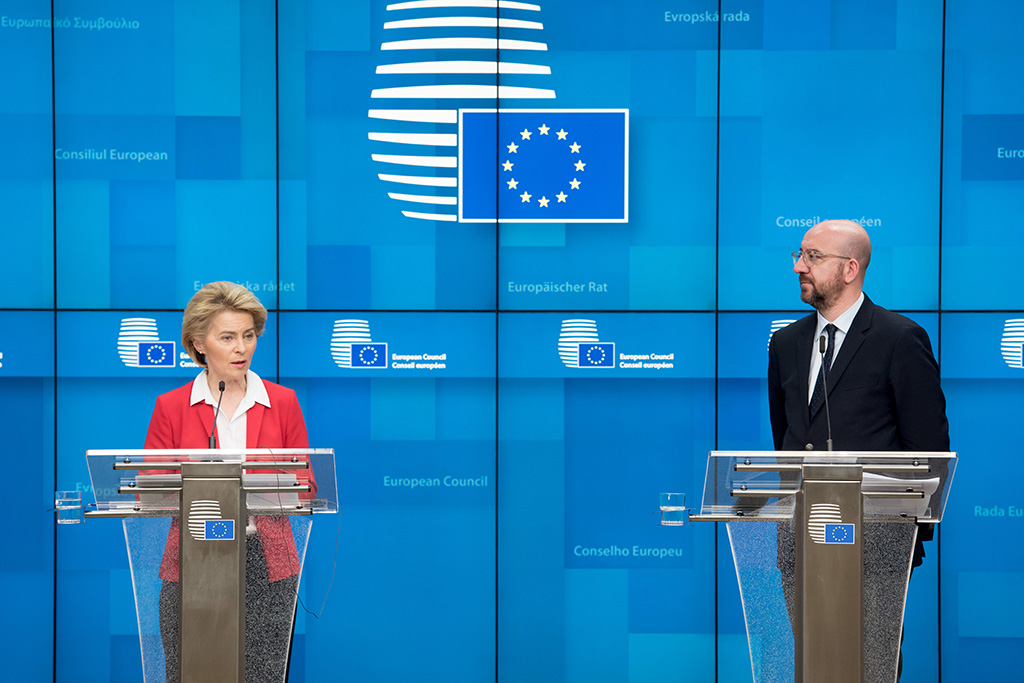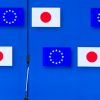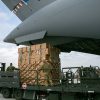
Shortly after taking office as the new President of the European Commission, Ursula von der Leyen pledged to lead a ‘geopolitical Commission’, as opposed to a “political Commission”. Since then, the European Commission has identified ‘a stronger Europe in the world’ as one of its key priorities for its 2019-2024 mandate. Together with von der Leyen, the most fervent supporters of this repositioning of Europe in the world have been High Representative of the Union Josep Borrell and French president Emmanuel Macron. Today, the idea that acting geopolitically is crucial to Europe’s survival on the world stage is widely shared in Brussels and beyond.
In the realm of academia, ‘geopolitics’ explain the distribution of military and economic power in a given geographic region and the resulting power dynamics. One only has to look back seventy years in European history to realize that it is precisely this dimension of European relations that two of the founding fathers, Jean Monnet and Robert Schuman, looked to leave behind. The goal was to create a framework of European integration far from the power politics that had brought war to the continent. For a long time, this was the conventional wisdom of European politics. This is because, until very recently, Europe had the luxury of leaving geopolitics to another global player that guaranteed security for the West and upheld the same values as the Union-democracy, rule of law and multilateral cooperation– the United States of America. The real coup de grâce for EU-US relations was the election of Donald Trump as the US president in 2016. President Trump has been very vocal about his dislike for alliances and multilateralism and preference for aggressive trade policies. In view of this, German Chancellor Angela Merkel admitted in May 2017 that “the times in which we could completely depend on others are on the way out” and “we Europeans have to take our destiny into our own hands.”
How does the new ‘geopolitical Commission’ aim to boost Europe’s position in the world? Institutionally, von der Leyen has promised a closer relationship between the internal and external aspects of the portfolios of the Commission. A new body, the Group for External Coordination, will be created for this purpose and will be chaired by the High Representative of the Union for Foreign and Security Policy. The High Representative will also chair the Commissioner’s Group for “a stronger Europe in the world.” This falls under a broader trend of giving the High Representative a more prominent role within the Commission. Additionally, the College of Commissioners will now discuss the Union’s external actions and prepare weekly reports on external action to ensure that the Commission’s proposed policies are sound geopolitically– i.e. that they take into account the geopolitical events taking place in the external arena.
The first 100 days of the ‘geopolitical Commission’ have not been short of challenges. In early January 2020, Iranian General Qassem Soleimani was killed in an airstrike launched by the US that led to a retaliatory operation by Iran. In a situation where every hour mattered, it took President von der Leyen three days to make an announcement. When she finally did, she spoke of the need of de-escalation and called for the end of the use of weapons to give space to dialogue insisting that the “European Union in its own way has a lot to offer.” Her response proved to be too little, too late. World leaders lamented the lack of action by the EU. While the world braced itself for escalation, the geopolitical Commission stood out for its inaction.
In February, the UN-backed government in Libya withdrew from peace talks after General Haftar’s militias heavily bombed the capital. Following the ‘Berlin Conference’, which was convened by German chancellor Angela Merkel, von der Leyen and Borrell stated that the EU’s position was to strengthen the UN-led mediation efforts, ensure a ceasefire and re-launch the political process in Libya. In the meantime, Turkey had approved to send troops to Tripoli to ensure stability for the UN-backed government and Russia received General Haftar in Moscow to negotiate an arms deal. Thus, in the space of weeks, Europe’s response proved to be purely rhetorical while Russia and Turkey seized the opportunity and took the lead. The Libyan crisis, which is of particular importance to the EU not only geopolitically but also due to its migration implications, has become another failure of the geopolitical Commission.
Later that month, a new wave of the refugee crisis struck Europe. On 27 February, Turkish President Recep Tayyip Erdoğan opened Turkey’s border to Syrian refugees, leading to 35,000 refugees amassing at the border with Greece. The move was a clear act of political pressure on the EU. On 9 March, Turkey’s President Erdoğan, President von der Leyen and President of the European Council Charles Michel got together in Brussels. Instead of addressing the key geopolitical concerns at the heart of the crisis, namely the situation in Syria and the escalation between the different parties involved, von der Leyen advocated for border protection and generally adopted the ‘fortress Europe’ rhetoric. President von der Leyen may have acted to immediately contain a crisis, but shortsightedness is not what is to be expected of a ‘geopolitical Commission’. Instead of showing a ‘stronger Europe in the world’, capable of leading and solving its recurring problems, it closed its fortress on itself.
COVID-19
Finally, the outbreak of a global pandemic has put the ‘geopolitical Commission’ under another stress test. COVID-19, a novel virus originating from China, has managed to spread to Europe and, in a matter of weeks, has made Europe the epicenter of the pandemic. The first responses to contain the spread of the virus on the continent were taken unilaterally by the different Member States. The COVID-19 outbreak was an opportunity for the EU to be a leader in crisis response and to promote its external image by adopting, like China, a worldwide coronavirus diplomacy. It was only on 16 March, nearly two months after the first case of COVID-19 in Europe appeared, that the Commission finally proposed a set of measures to limit the outbreak. These included a temporary ban on non-essential travel to the Schengen area for 30 days, which was applauded by many as the first geopolitical act to have been taken by the Commission. Unfortunately, it was taken weeks after the first member state closed its own national borders undermining the Schengen area and the European freedoms of movement, and public opinion solidified on European inaction.
It will take time for Europe to lose the muscle memory it built after seventy years of purposefully not dealing in geopolitics and, in the road of finding its ‘geopolitical’ identity, the Commission will have to face unprecedented challenges. How Europe responds to these challenges will seal its fate. President von der Leyen claimed “100 days is only enough time to set a direction and to take the first big steps on our journey.” Today, we find ourselves at an inflection point in history. The next 100 days will be determining for the Commission, for the Union, and for the world. Never in our lifetimes have we faced such circumstances. The European people will look at the EU for guidance and foreign governments will look at the EU for inspiration. Von der Leyen must remember: the world is watching.

